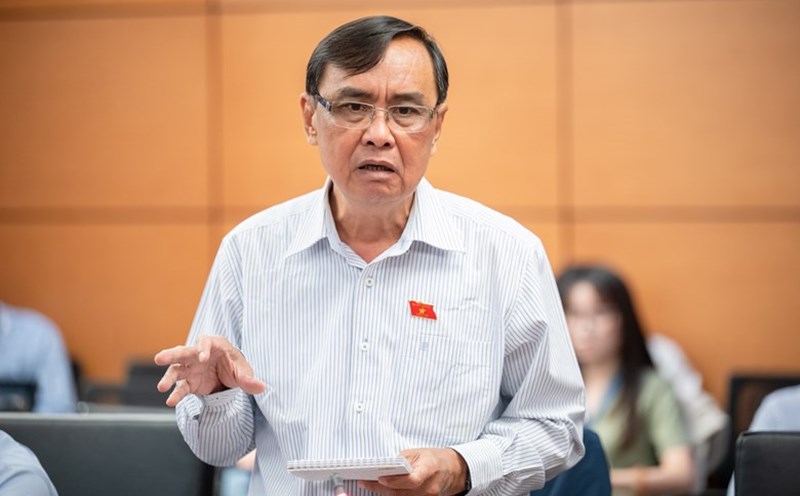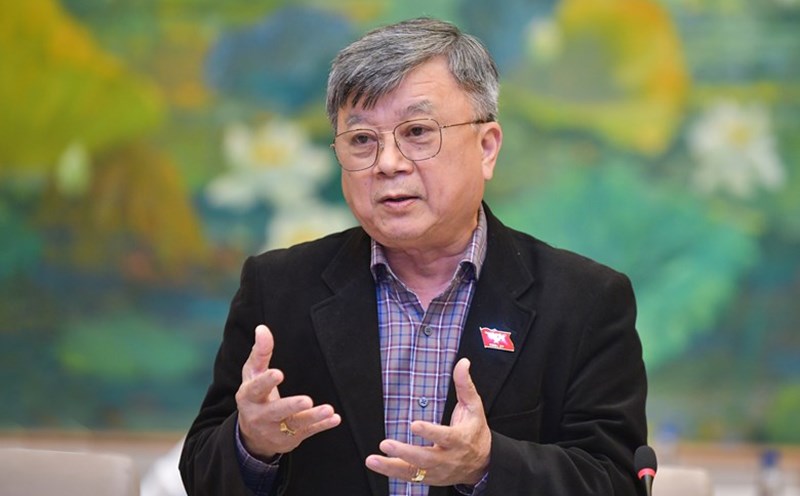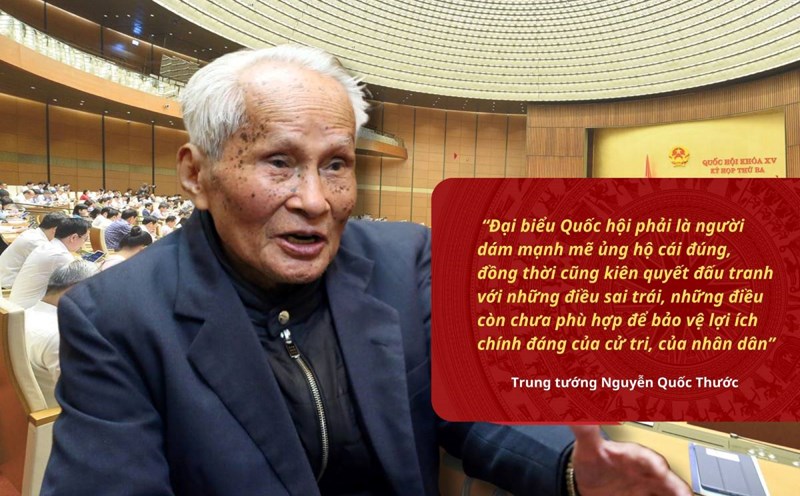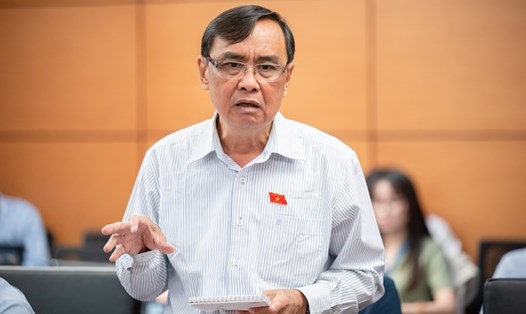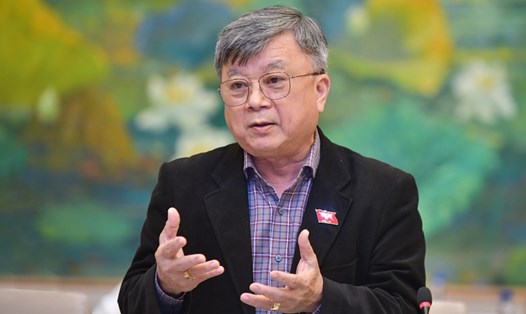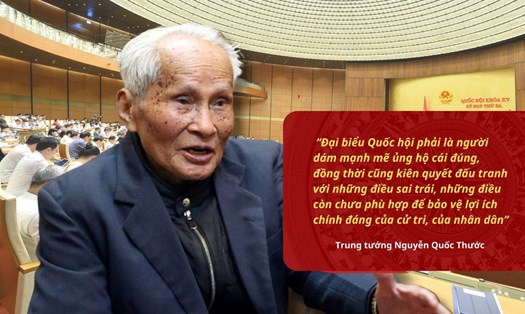The National Assembly delegation studies, classifies and forwards petitions.
On the afternoon of November 22, the National Assembly discussed in groups the draft Law amending and supplementing a number of articles of the Law on Supervisory Activities of the National Assembly and People's Councils (PCs).
National Assembly Delegate Ha Phuoc Thang - Deputy Head of the Ho Chi Minh City National Assembly Delegation - said that regarding the activities of the National Assembly Delegation, the draft proposed to add a provision that when receiving complaints, denunciations, and petitions from citizens, the National Assembly Delegation would organize research and handling. If necessary, it would be forwarded to competent agencies, organizations, and individuals for consideration and handling.
According to the delegate, the regulation that the National Assembly Delegation receives the petition, studies it, processes it, and forwards it if necessary is not consistent with current regulations. Because after reviewing and studying, the most important thing is to forward the petition, but the National Assembly Delegation does not have the function of processing the petition, this is the job of competent agencies, organizations, and individuals.
From this analysis, the delegate proposed that upon receiving complaints, denunciations, and petitions from citizens, the National Assembly Delegation will organize research, classify the petitions, save the petitions, return the petitions, issue written instructions to citizens, or forward them to competent agencies, organizations, and individuals. This is the process that the National Assembly Delegation is implementing.
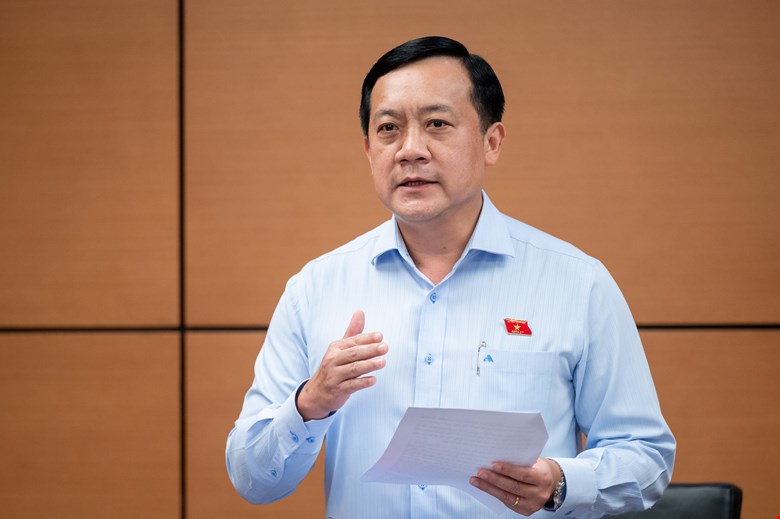
Send out a lot of applications, get only a few responses
Lieutenant General Nguyen Minh Duc - Deputy Chairman of the National Assembly's Defense and Security Committee - emphasized that regarding the supervision of National Assembly Deputies and National Assembly Delegations, whenever a citizen sends a petition to a National Assembly Deputy, there will be a receipt, informing the citizen that the petition has been received and forwarded to this or that agency.
“In fact, we see that the notice of sending information to this or that agency has no stamp. We in the Central Office have sent many petitions but received only a few responses. We have to ask people to send documents to the Committee, not to individual delegates.
After that, the delegates will go through the Committee to have a department to handle the people's petitions. The documents sent with stamps sent to the addresses on the petition will hopefully receive a response," said Mr. Duc.
According to the delegate, if the ballot is signed without any stamp, there will be almost no response. This is very formal, when the delegate returns to contact voters after each session, he feels very guilty and ashamed towards the people for not being able to resolve their legitimate issues.
However, the delegate also pointed out the fact that there is no right to urge. If the delegate sends the second time to an agency, they will only report that it has been resolved in order or transferred to agency A, agency B for resolution, which is very roundabout.
Thus, the supervisory nature in this law must be regulated to increase efficiency and effectiveness so that each National Assembly Deputy and National Assembly Delegation must perform the supervisory function.
It is necessary to create unity in supervision to support the functional agencies of the Government and the agencies of the Party. Only then can violations and bottlenecks be detected in time to make recommendations and amend the law, helping to achieve the best results.
Delegate Truong Trong Nghia (HCMC delegation) pointed out that there are monitoring activities that are only formal, not done well, done hastily, and reports from various places are incomplete. There are reports that show a lot of data, but they are just statistics of addition, subtraction, multiplication and division, and the actual situation is not mentioned.
The delegates proposed that the National Assembly supervise the resolutions of the People's Councils of centrally-run cities. Through supervision, we will see what problems there are, and whether the law has been put into practice. As for issues that need to be adjusted, we will report to the Government and the National Assembly Standing Committee.

